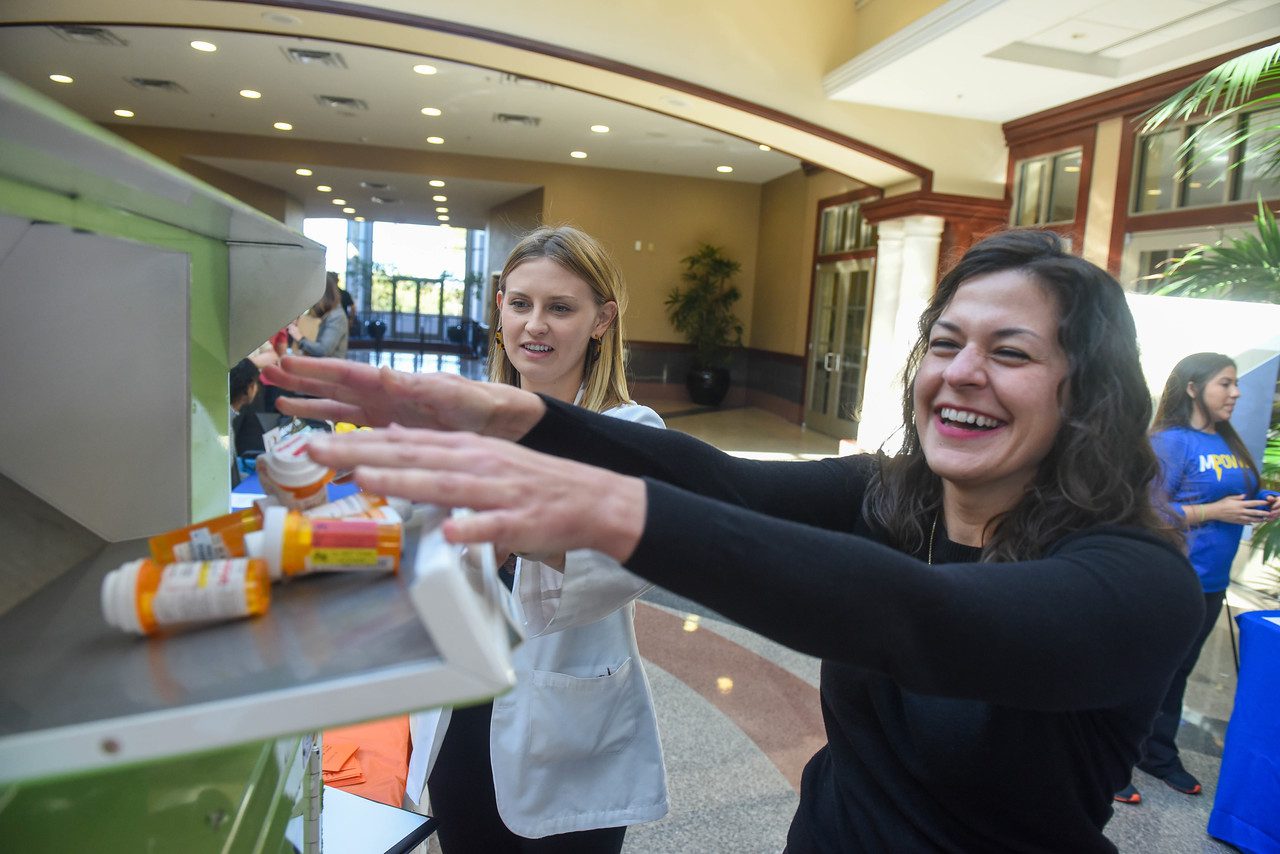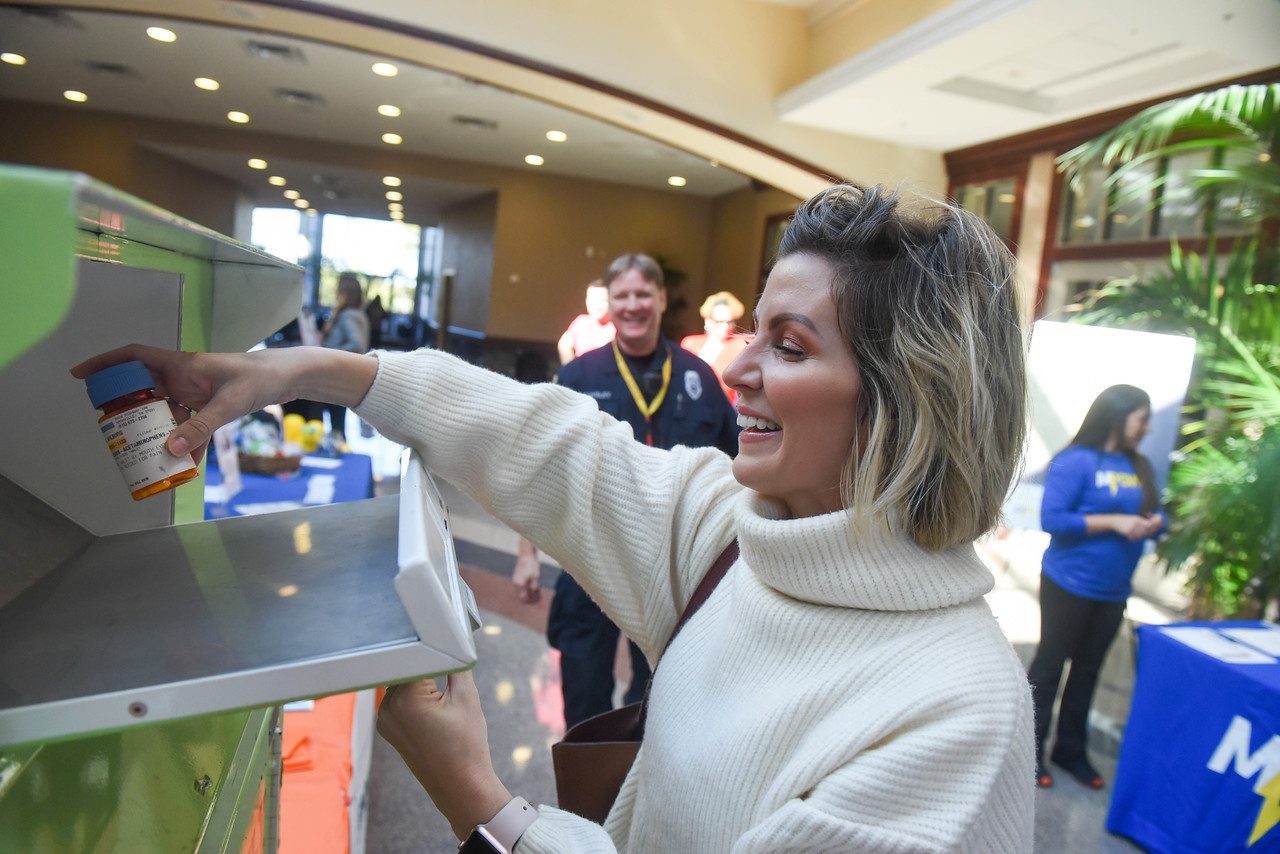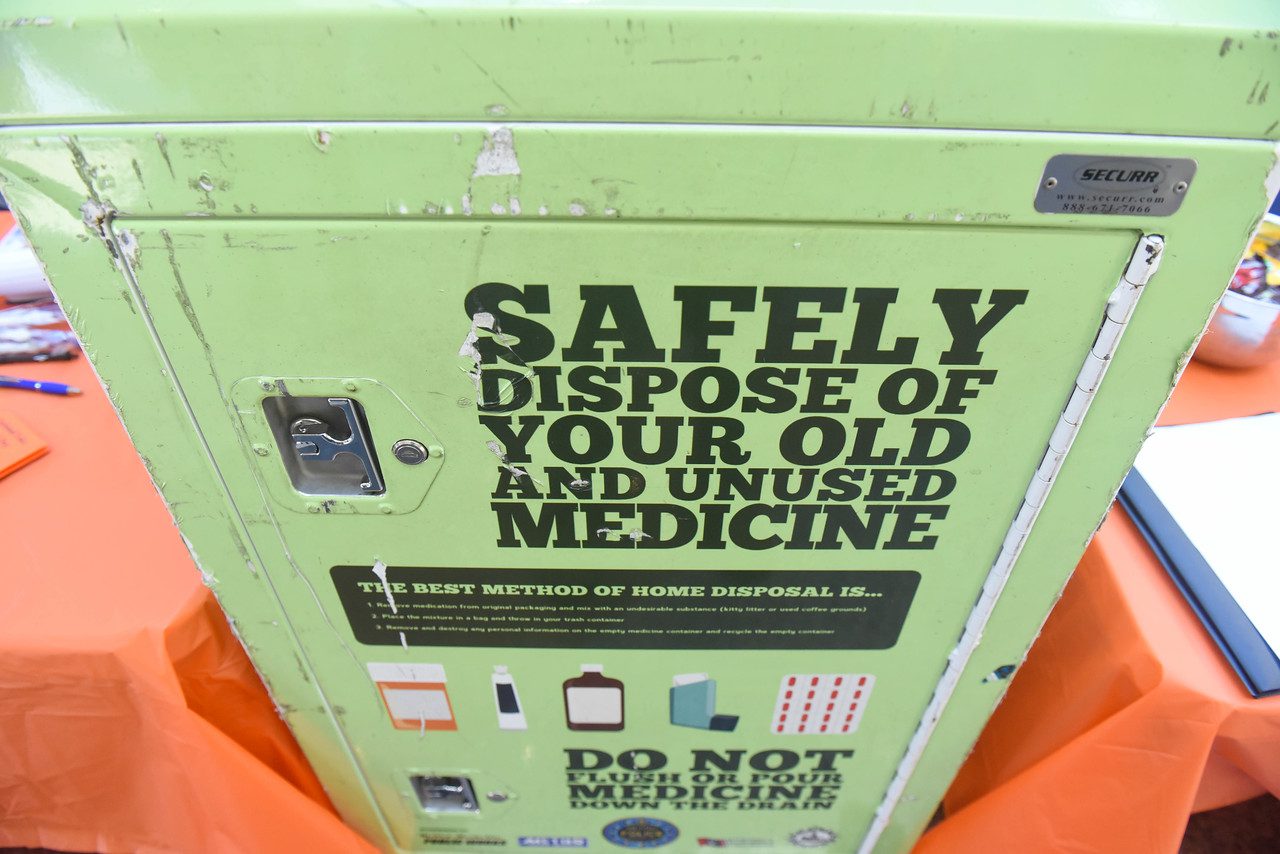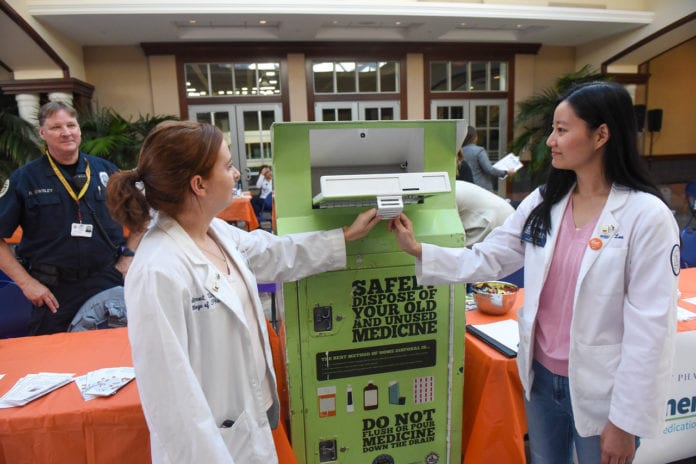Pharmacy Student Rachel Milwee had never previously considered what to do with leftover medication. Like many, unused prescription pills were stashed in the back of a household medicine cabinet until time for spring cleaning. However, this practice can often lead to medicine misuse, as the 2018 National Survey on Drug Use and Health proved that a majority of abused prescription drugs are obtained from family and friends.
Now as a second-year pharmacy student, Milwee and her peers are taking steps to prevent drug misuse through Generation RX, a division of the patient care initiative of APhA-ASP (the student division of the American Pharmacist Association). Belmont’s chapter was pleased to partner with Metro Police to host the first on-campus Drug Takeback event at Belmont’s Health and Wellness Fair on October 23. The event also provided informational pamphlets with instructions for students and faculty to safely dispose of their medications at home.
Assistant Professor Kendall Shultes, co-advisor for the student organization, said, “We were really excited to be able to offer this event to Belmont University’s campus. As our first drug takeback on campus, we were unsure of how many people to expect. Regardless of the number who attended, I think it helps to bring awareness on fighting drug abuse and that it can start with changes in the home. We are thankful for the support of Belmont and Metro Police and look forward to hosting another drug takeback in the future.”

Milwee serves as chair of the Generation RX educational program and has helped lead Belmont’s campaign. “This is a great opportunity for students and faculty to not only prevent medication misuse and/or diversion, but to learn about safe medication disposal practices,” she explained. “We want to educate students and faculty. I know my own family isn’t very medically-literate, so I think events like this are important. If you teach students safe drug practices, they can take that home to their families.”
With the opioid epidemic at an all-time high, the federal Drug Enforcement Administration established a National Prescription Drug Takeback Day to allow communities to dispose of unused medications safely. With that in mind, the Belmont pharmacy students elected to hold their event just a few days before this year’s national day on October 26.
Drug takeback events are one of the most visible ways to increase public awareness and encourage health care providers, community leaders, parents, teens and college students to actively work to prevent abuse. Last year, there were 5,389 collection sites that participated and collected 914,236 lbs. of unused medication. All kinds of medications are accepted in a drug takeback.

Metro Police provided and monitored the certified box for the medications. Belmont students did not handle the medications, but were there to provide community counsel. After the event, the police take the box away, weigh the medicines for DEA records and dispose of them properly.
Milwee said in addition to the campus takeback event, students also worked on a social media campaign for the week about safe drug practices, with emphasis on the opioid overdose antidote naloxone (Narcan®). This campaign was shared on Facebook and Instagram and reached more than 2,600 people.
“The main counseling points on our social media campaign are about what to do if you see signs of an overdose, what people will be exhibiting if they’re having an overdose, and some basic facts about Narcan®. Narcan® is never going to hurt someone that is not having an overdose; it’s simply a reversal,” explained Milwee. “It’s a great medication; it saves a lot of lives. Anyone is able to get Narcan® and should do so if they have any concern about a family member or friend. Letting as many people know that is really important.”

For any community member who needs to dispose of extra or expired prescription medication, most neighborhood pharmacies have drop boxes bolted to the ground year round. Collection sites can also be found on the DEA website here. For Nashville students in particular, there are boxes all over Vanderbilt University’s campus. Amazon also sells bags online that chemically neutralize medicine at home for safe disposal.
For those in rural areas without these resources, pharmacists suggest putting the medications in a sealed container with coffee grounds or kitty litter. While these two options do not technically neutralize, they act as a deterrent to anyone seeking pills.
As Milwee and her peers look forward to their future as pharmacists, events like these show her how big of an impact she can make. She said, “I think it’s always important as a pharmacist to be teaching people safe medication practices and making sure patients know how to take their medications and how to dispose of them.”



